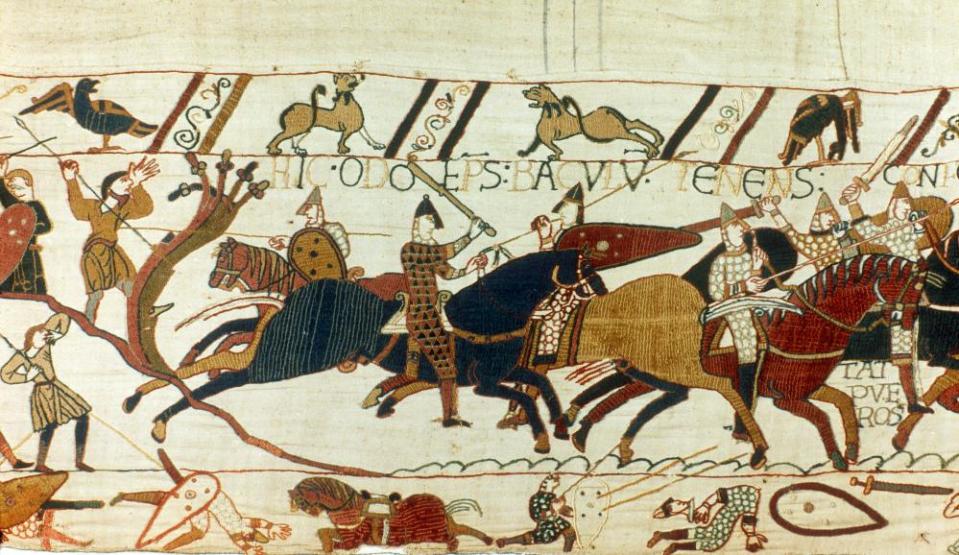On behalf of all ‘future historians’, leave us out of your Brexit rants

Historians of the future will not judge us kindly. Historians of the future will vindicate us. (Historians of the future can feel their ears burning.) In the context of the debate around Brexit, and the past few years of turbulent political developments around the world, it feels like future historians have never been more present.
The appeal to the future historian is a common trope in times of crisis. The historian of the future is pictured as a horrified figure, peering back at the madness of contemporary life. So, people claim that the future historian will be baffled, or alarmed, or confused by what is going on right now. Historians of the future, who are rational adults, will not understand why we behave in the ridiculous ways that we do. This functions as a sort of gentle chiding, a call for us to be more sensible.
This always makes me feel slightly defensive on behalf of those historians, who are assumed to be so guileless. In reality, those future historians won’t be so confused. They will probably look at economic inequality, political disenfranchisement, a volatile media with low levels of trust, decades of complicated relations between Britain and the other European nations, decolonisation, deindustrialisation, xenophobia, racism, and the legitimate concerns of middle-class, home counties homeowners, and make an argument to explain why the referendum went the way it did. Historians have distance, and documents. They might see things that we can never understand in the moment, but they won’t be any more baffled than we are now.
Historians of the future will not explain Brexit once and for all; they won’t settle on a single story, any more than we can today
It is also worth pointing out that historians are around right now, working right up to the very recent past. We have lots of ideas about why Brexit happened, and about the wider and longer context. When people reach for historical parallels today, historians can also tell you why these things often do not make sense – it is not historians, mostly, who are drawing analogies between Brexit and the Reformation. But the people who invoke historians of the future are less keen on listening to actually existing historians today.
We should also remember that historians of the future will have their own opinions about Brexit: why it happened, whether it was worth it, who it served and how. Invoking historians of the future often supposes that they will be neutral actors. But this is not how historians work. We come to the archive with our own ideas and perspectives. And the archive is often overflowing, and we cannot possibly read everything. We have to make choices about which narratives we emphasise. Those choices are shaped by our existing principles and the ways that we already understand the world: what schoolchildren are taught to call “bias”. Historians of the future will probably already have strong ideas about Brexit: their narratives and stories will not necessarily be less neutral or more trustworthy than ours.

It is worth asking, too: what do we actually want from the historians of the future? Do we really want them to weigh up the evidence, and to judge us based on the facts and only facts? I don’t think so. What we want is to be proved right. This is the other function of the “historian of the future”: to reassure us that our interpretation is correct, and that we truly understand what is going on. When people say that historians of the future will argue X, Y or Z, what they are doing is arguing X, Y or Z themselves, but clothing that argument in the moral and intellectual authority of some mythic future scholar.
This is not only misjudged because historians are fallible and partial; it also shows a naive confidence in the idea that historians of the future will all ever agree. We have not, as a profession, settled on a single agreed narrative of the causes or consequences of any event in history, from the Battle of Hastings to the Battle of Britain. Nor should we: historians do not seek to write a single account of what happened, but to explore and offer up multiple overlapping, contested narratives of the past. Historians of the future will not explain Brexit once and for all; they won’t settle on a single story, any more than we can today.
Related: Johnson should beware – forcing a crisis rarely ends well for aspiring strongmen | Andy Beckett
Perhaps most of all, appeals to historians of the future are self-aggrandising in the context of the present. We like to believe that the choices we make are so important that they shift the tides of history – that the actions we take, like a butterfly’s wings, can change the future. We want to sit in the spotlight of historical attention. We want reassurance that our time is special and distinct, and that future historians will care about us: we will not be consigned to the condescension of posterity.
Undoubtedly, historians will write many books about Brexit, its causes and its consequences. But historians will write about lots of other things that happened, too, from our shopping habits, to our divorce rates, to the football teams that we support. Historians don’t only care about big events like Brexit: everyone is living through history, all the time.
• Charlotte Lydia Riley is a historian of contemporary Britain at the University of Southampton

 Yahoo News
Yahoo News 
